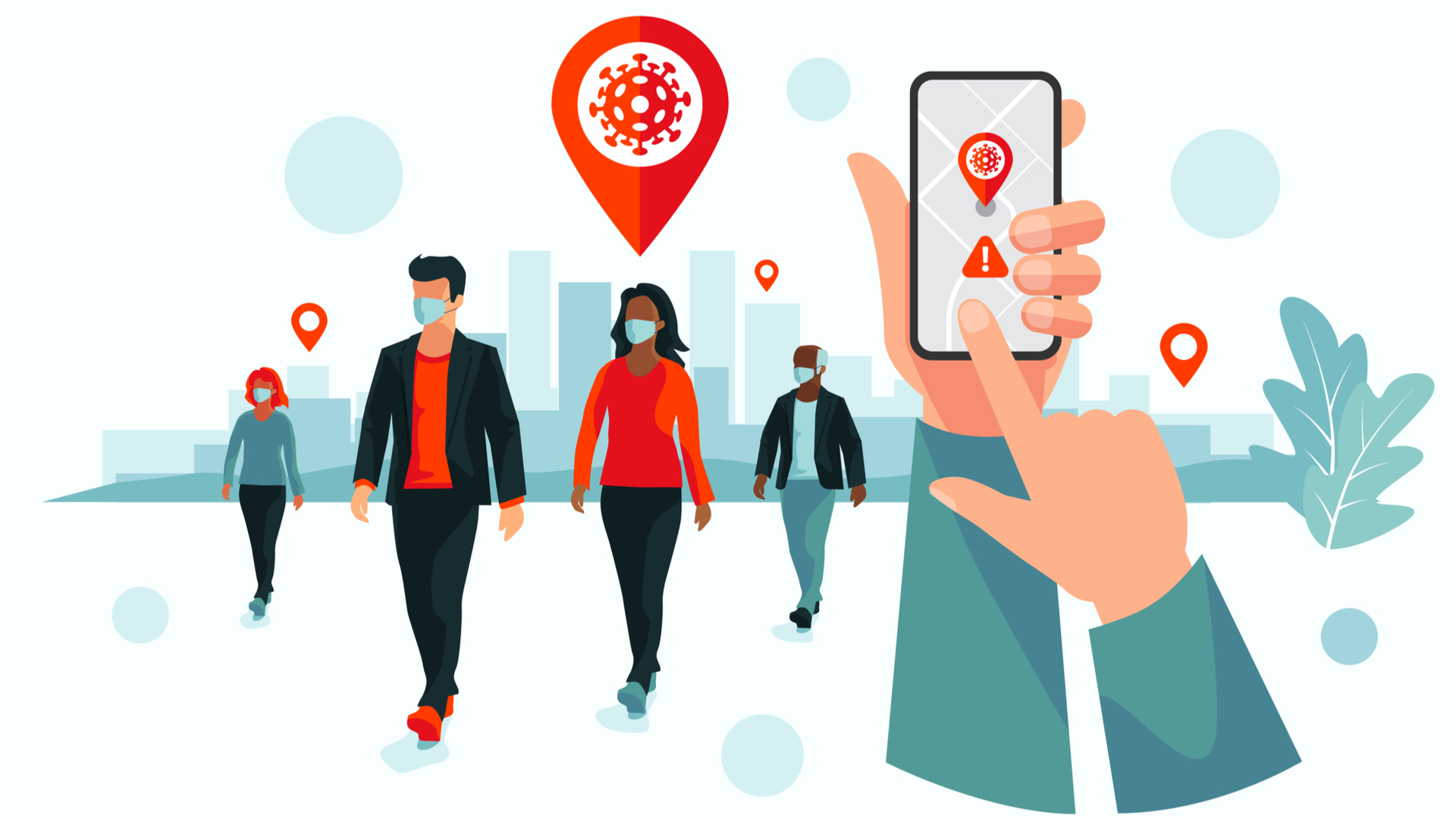Android and iOS updates pave the way for app-free contact tracing
The latest OS upgrades will allow authorities to manage COVID-19 outbreaks by sending notifications direct to handsets


Google and Apple have updated their contact-tracing capabilities to allow public health authorities to directly notify users about any potential exposure to coronavirus, without the need for an app.
Launched with iOS 13.7, and set to feature in an Android OS upgrade later in the month, Exposure Notifications Express allows users within a jurisdiction to participate in contact tracing using just their device.
Previously, software based on the Google and Apple-developed API was required for the Bluetooth-powered contact-tracing technology to work properly. The operating system update, however, allows those users who want to opt-in but don’t wish to download an app to participate in the scheme anyway, should the specific region’s public health authority decide to support Exposure Notifications Express.
Users with an iPhone running iOS 13.7, as well as an up-to-date Android handset once the update is rolled out, must first enable Exposure Notifications through their settings menu. The mechanism still relies on Bluetooth to establish contacts between users and adopts a similar authentication mechanism to the in-app experience.
Test centres will report positive tests to a central public health authority, which will, in turn, engage in a complex verification process with the user’s device. This mechanism involves the exchange of verification codes and tokens between the user’s device and two servers in order to securely establish the positive COVID-19 test is genuine.
When a user’s positive test is verified, it’s added to the database in the form of a key, which is subsequently downloaded by others. Those who’ve registered a contact with the coronavirus sufferer’s smartphone through Bluetooth are then notified directly that they may be at risk.
To support the app-free technology, public health authorities must first deploy a test verification server, which validates positive COVID-19 tests during a key upload, as well as the key server, which handles key uploads and downloads.
Sign up today and you will receive a free copy of our Future Focus 2025 report - the leading guidance on AI, cybersecurity and other IT challenges as per 700+ senior executives
The developers’ contact-tracing technology has, until now, only been available in the form of an API that public health authorities could work with to develop an app which they must then encourage people to download.
The UK, for example, has been trialling a version of such an app on the Isle of Wight and the London borough of Newham, based on the Google and Apple API. This step was only taken after the government first attempted to build an app from the ground-up.
Its development ran into major problems, however, including reports of bugs and security issues, with the project being eventually abandoned following an initial trial, again on the Isle of Wight.
Baking this technology into the respective mobile operating systems represents a major step forward in encouraging more widespread adoption, which is essential for digital contact-tracing to work effectively.

Keumars Afifi-Sabet is a writer and editor that specialises in public sector, cyber security, and cloud computing. He first joined ITPro as a staff writer in April 2018 and eventually became its Features Editor. Although a regular contributor to other tech sites in the past, these days you will find Keumars on LiveScience, where he runs its Technology section.
-
 The modern workplace: Standardizing collaboration for the enterprise IT leader
The modern workplace: Standardizing collaboration for the enterprise IT leaderHow Barco ClickShare Hub is redefining the meeting room
-
 Interim CISA chief uploaded sensitive documents to a public version of ChatGPT
Interim CISA chief uploaded sensitive documents to a public version of ChatGPTNews The incident at CISA raises yet more concerns about the rise of ‘shadow AI’ and data protection risks